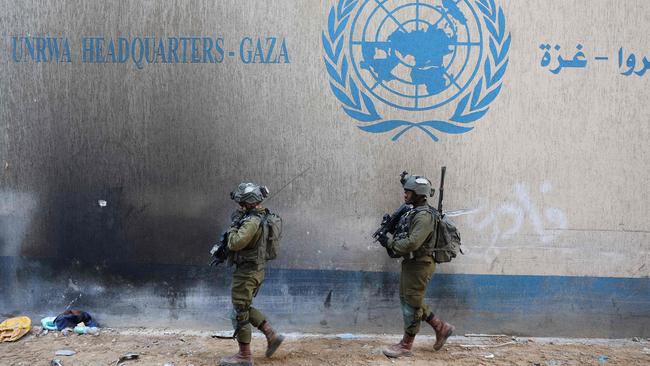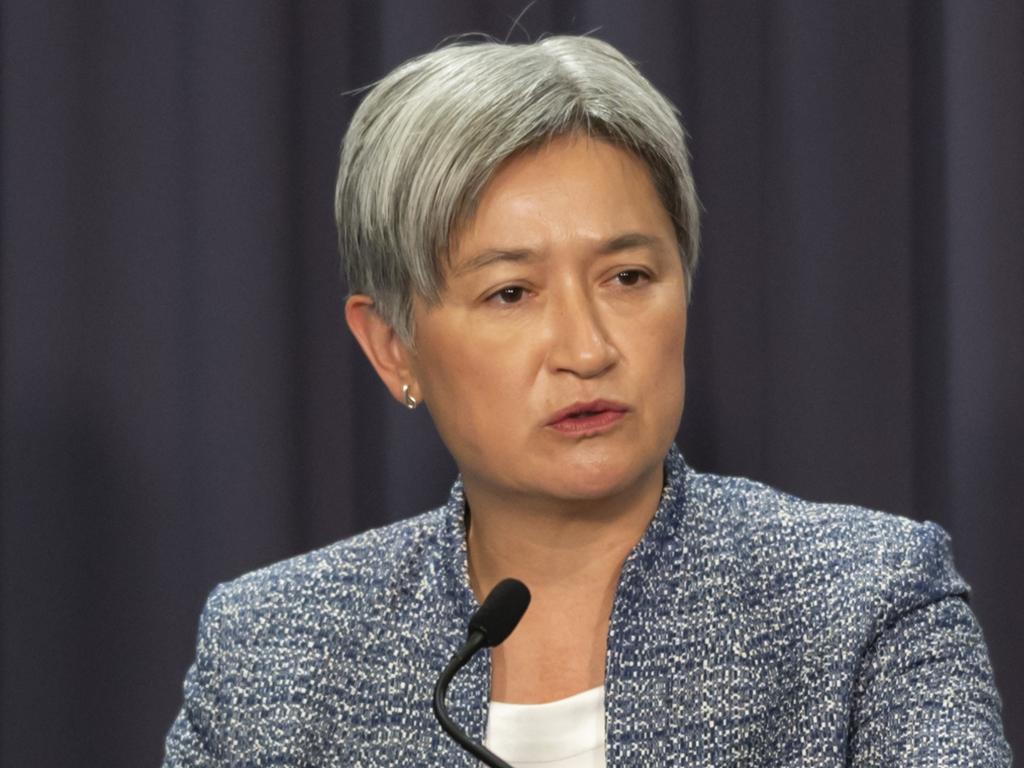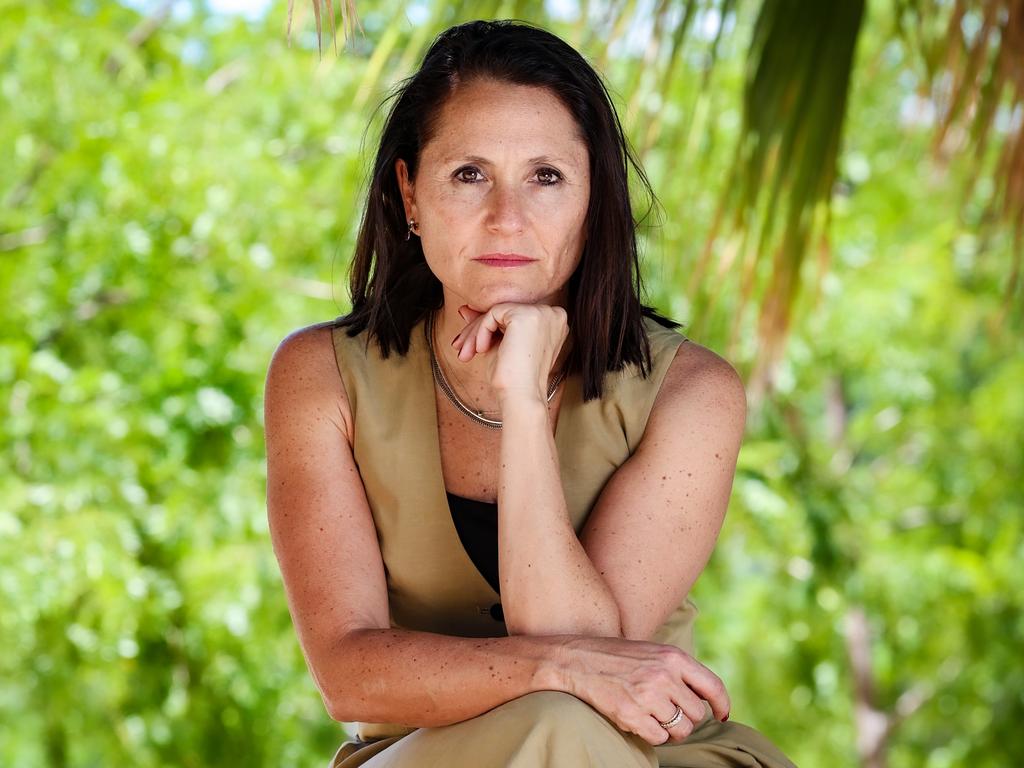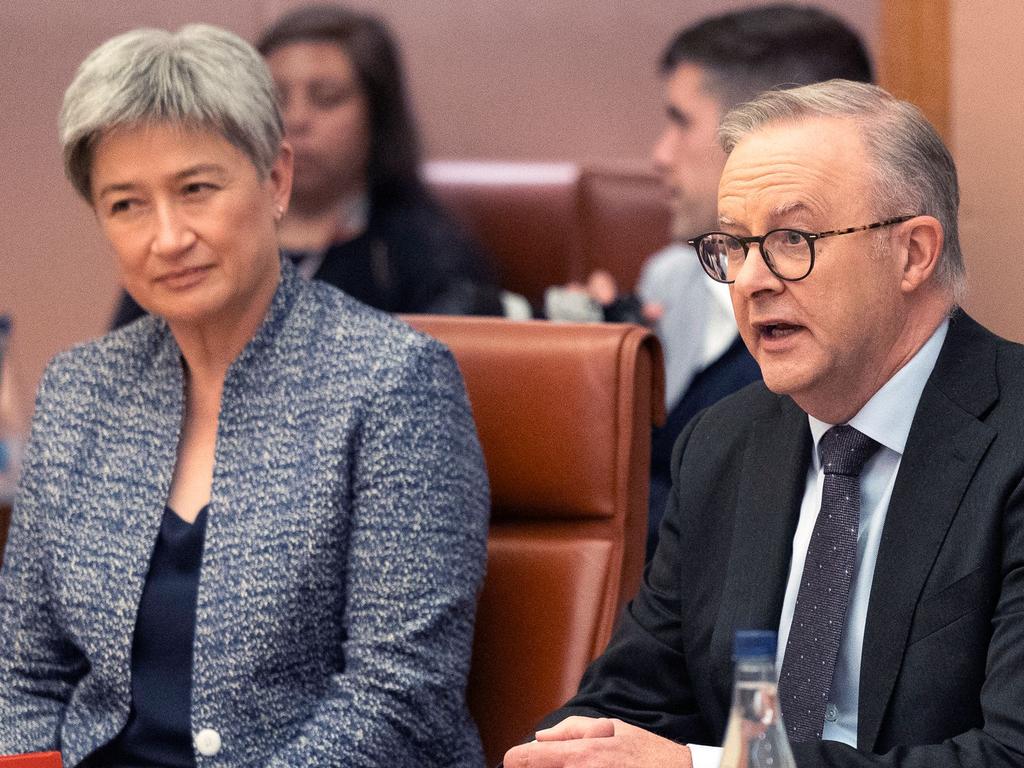
The Israeli government has provided incontrovertible evidence that at least 12 UNRWA employees directly participated in the bloodbath. A further 1200 – 10 per cent of the agency’s staff in Gaza – have been found to be members of Hamas and/or other designated terrorist organisations.
Late last week, beneath the agency’s headquarters in Gaza City, the Israeli army discovered one of the Hamas terror group’s most significant assets – a subterranean data centre, complete with industrial battery power banks, living quarters and electric cables powered directly from UNRWA servers.
The dilemma for Australia is that, despite UNRWA’s obvious links with Hamas, it may also be the case that the agency is the only organisation equipped to immediately deliver the vital humanitarian aid so many Gazans need.
The policy challenge is especially wicked because documented evidence of UNRWA’s corruption and complicity with Hamas has been provided to the UN for years with no action taken, allowing problems to fester and deepen the divide between Palestinians and Israelis.
Praising terrorism in Australia in a way that encourages others to participate in is considered a crime, punishable by law. Yet UNRWA’s promotion of terrorism has been the UN’s best kept secret for years and, all the while, the agency has been receiving funds provided by well-meaning taxpayers from Australia and elsewhere.
To add insult to injury, UNRWA is demonstrably ineffective in delivering on its core responsibilities as an aid agency.
UNHCR, the agency responsible for the rest of the world’s refugees, cares for 13 times the number of people, with half the staff. UNRWA spends almost double the amount of money on each Palestinian refugee than the UNHCR spends on any other refugee across the globe.
But the most telling statistic is this: the UNHCR resettles (turns around the refugee status of) hundreds of thousands of people each year. In 75 years of existence, UNRWA hasn’t resettled a single individual.
Why? Because resettling refugees is not part of UNWRA’s mandate. Quite the contrary, the agency opts to provide services that tie people to UNRWA. It automatically grants refugee status to newborns (which UNHCR cannot do) and consciously perpetuates the fiction that Palestinian refugees and their descendants will inevitably return to Israel.
The reality is that no viable Israeli-Palestinian peace could accommodate a mass migration of Arabs to the world’s only Jewish state. It’s as absurd as having a UN body advocate for the return to Arab countries of the 800,000 Jews (and their descendants) who were forced to flee those countries and settled in Israel.
While the Palestinian Authority encourages terrorism through its “pay for slay” laws, which reward Palestinians who murder Israelis, the educational system UNRWA provides to Palestinian children glorifies terrorism and undermines peace.
All these factors go to show how UNRWA has become a major obstacle to achieving a lasting resolution to the Israel-Palestinian conflict.
Despite this great big lie the agency tells the people it is supposed to serve, and despite its well documented failures as a refugee agency, its corruption and affiliation with proscribed terrorist organisations, successive Australian governments (and other government across the world) have provided millions of dollars to UNRWA.
Every jurisdiction claims to impose accountability on the organisation, but none has really done so in earnest – until now. Why? Because the fear of political pushback and disrupting the delivery of aid has seen the international community choose the path of least resistance.
Instead of holding UNRWA to account for policies that undermine peace, we’ve rewarded it with largesse and tolerance. No more.
And it is deeply regrettable that the long-overdue pausing of funds to UNRWA has come in the midst of a very real humanitarian disaster unfolding in Gaza.
The path the Australian government can and must take is to assess whether UNRWA is genuinely capable of reform and, if so, make any renewed funding contingent on the agency implementing and demonstrating the necessary transformation – not an easy task.
Australia wouldn’t and shouldn’t have to act alone. The same dozen countries that have paused funding to UNRWA, including the United States and the UK, are surely capable of collectively solving this problem or finding an alternative way to deliver aid to Palestinians without bolstering a terrorist organisation.
The Israeli-Palestinian conflict has festered for so long in large part because the international community has looked the other way in the face of violent incitement and the brutal suppression of true freedom within Palestinian society.
A post-Hamas Gaza will create an opportunity for the international community, including Australia, to reset and not make the same mistakes again. We owe it to both Palestinians and Israelis to get it right this time.
Jeremy Leibler is president of the Zionist Federation of Australia.







The Australian government finds itself in an unenviable policy bind. Alongside a dozen other countries, Australia paused funding to the UN’s Palestinian refugee agency, after evidence emerged of UNRWA’s complicity and possible participation in the October 7 massacre of Israeli civilians.